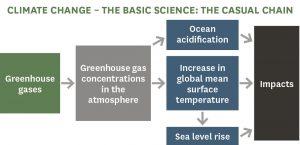WelCom June 2018:
Annette Scullion
As part of its ‘New Beginnings’ programme, St Francis of Assisi Ohariu Parish hosted a packed venue in Johnsonville on Sunday 6 May, for a community discussion about climate change and what to do about reducing carbon emissions to ‘protect our common home’.
Jonathan Boston, Professor of Policy Studies at Victoria University of Wellington of the School of Government, delivered a comprehensive presentation entitled: Protecting our ‘Common Home’ Wrestling with the implications of climate change. He looked at the science of climate change, what we need to do globally, nationally and individually and cited reasons for hope, founded on Christian doctrines.
Professor Boston drew on Pope Francis’ Laudato Si’, scientific information and range of visual reminders about the realities of climate-change impacts globally and locally – catastrophic flooding, out-of-season wild fires, rising river and sea levels and their impacts to eco-systems and low-lying settlements, severe storms, receding glaciers, destruction of coral reefs – notably Australia’s Great Barrier Reef, as well as risks to homes, businesses and infrastructure, and major impacts on food production and security, health, and species.
Professor Boston said stopping human-induced climate change requires collective action and international measures but that there are huge obstacles. These include: geopolitical divisions; national self-interest; powerful vested interests like the fossil-fuel industry; denial; apathy and other priorities; the creeping problem and its implications for a sense of urgency; complexity and uncertainty; and limited capacity for enforcement.
Climate stabilisation needs to be done globally, nationally and individually to keep warming to ‘well below’ 2°C and ‘to pursue effort to limit the temperature increase to 1.5°’, he said. ‘To achieve the Paris goal, there must be a rapid process of decarbonisation globally. We need to transform our energy systems, stop deforestation, and improve land-use management. And there needs to be a massive switch in public and private-sector investment and consumption patterns,’ he said.
‘Individually we can act by becoming better informed; supporting sensible government measures to reduce emissions; supporting smart, higher-density urban development; change investment patterns, for example divestment from fossil fuel companies; use public transport, purchase low-emission vehicles, undertake less foreign travel; and consume less meat and dairy products.
Professor Boston concluded with a message about Christian convictions of hope and ‘the importance of human responsibility and response, human imagination, creativity, our capacity for love and care versus destruction and evil, and about a God who loves, creates, suffers, redeems, and is transcendent yet immanent.’
